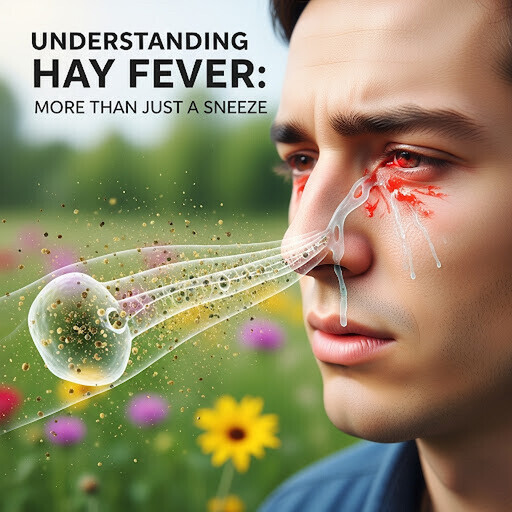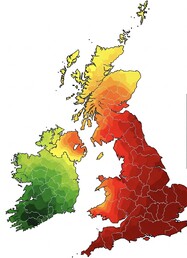High Pollen Alert: Tackle Hay Fever with Qu-Chi Solutions
The UK is currently in the grip of peak grass pollen season, with forecasts across the country soaring to high and very high levels, bringing misery to millions of hay fever sufferers. With the Met Office issuing alerts for Wednesday, June 11th, and beyond, especially for Yorkshire where levels are very high, many are bracing for an uncomfortable period. If you've been sneezing, rubbing your eyes, and feeling under the weather, you're not alone. This blog post will delve into the latest pollen news, explain the science behind your symptoms, and explore natural solutions, including the innovative bestselling Qu-Chi hay fever band®, to help you through the pollen onslaught.
Red Alerts for Pollen: The National Picture
Warm, dry weather has created a perfect storm for grass pollen proliferation. The Met Office has issued numerous high and very high pollen warnings across extensive parts of the UK, including the North West, the Midlands, Wales, and the South East. This intense period is expected to continue, meaning relief may still be some time away for many.
The daily pollen count typically peaks in the early morning and again in the late afternoon and evening on warm, breezy days. The current conditions are exacerbating the situation, although excessively high temperatures can eventually lead to a decrease in pollen levels. However, the immediate forecast suggests continued high counts, with the added complication of potential "thunderstorm asthma" – a phenomenon where storms can break pollen grains into smaller, more easily inhaled particles, triggering more severe reactions.
Understanding Hay Fever: More Than Just a Sneeze
Hay fever, or seasonal allergic rhinitis, is an allergic reaction to pollen. When someone with hay fever inhales pollen, their immune system mistakenly identifies it as a threat and releases chemicals, such as histamine. This triggers the familiar and often debilitating symptoms:
Sneezing and a runny or blocked nose
Itchy, red, and watery eyes
An itchy throat, mouth, nose, and ears
Coughing
Headaches and sinus pressure
Fatigue and a general feeling of being unwell
For the approximately one in five people in the UK affected by hay fever, this time of year can significantly impact daily life, from work and school to simply enjoying the outdoors.
Finding Natural Solace: Solutions Beyond Medication
While antihistamines and nasal sprays are common go-to treatments, many people seek natural and drug-free alternatives to manage their symptoms, either as a standalone solution or in conjunction with conventional medicines. Simple lifestyle adjustments can make a big difference:
Monitor the pollen forecast: Check the daily pollen count for your area and plan outdoor activities for when levels are lower.
Create a pollen barrier: Apply a balm around your nostrils to trap pollen. Wearing wraparound sunglasses can also protect your eyes.
Keep pollen out: Keep windows and doors closed as much as possible, especially during peak pollen times.
Wash it away: Shower and change your clothes after being outside to remove pollen from your hair and skin.
In addition to these practical steps, some people explore dietary changes, such as consuming local honey in the belief it can help desensitise the body to local pollen, and incorporating foods rich in the natural antihistamine quercetin, like onions and kale.
A Drug-Free Phenomenon: The Qu-Chi Hay fever Band®
Among the array of natural options, one product has generated a remarkable level of attention and user loyalty. The Qu-Chi hayfever band® is a drug-free acupressure band worn on the elbow. It operates on a principle from Traditional Chinese Medicine, applying pressure to the "Qu-Chi" (LI-11) point, which is believed to help rebalance the body's energy and alleviate symptoms associated with the head, nose, and eyes.
So, what is behind its sustained popularity?
It’s not every day that a natural solution achieves such widespread recognition.
This confidence is strongly reflected in its public reception. Launched in 2008, and for over a decade, the band has consistently been a best-seller on major platforms like Amazon in the UK and across Europe and Japan. When a product maintains that level of popularity for so long, it suggests that users feel it offers them a real and valuable benefit. This is further supported by thousands of positive testimonials and recommendations from figures like Dr. Sarah Jarvis.
For the millions of people looking for a drug-free way to manage their season of sniffles and sneezes, the sheer weight of user loyalty and media attention makes the Qu-Chi band an option that is certainly difficult to ignore.




